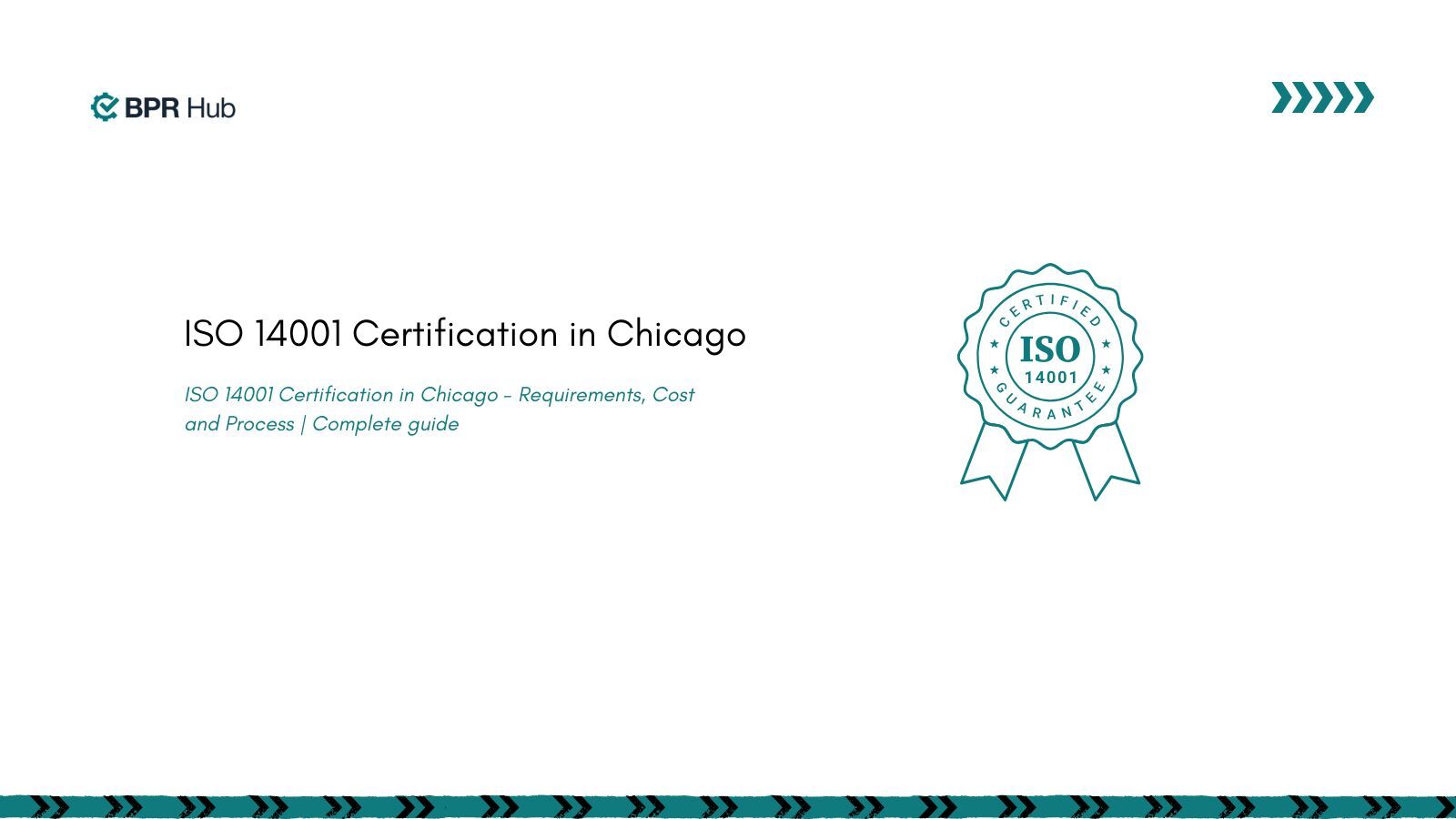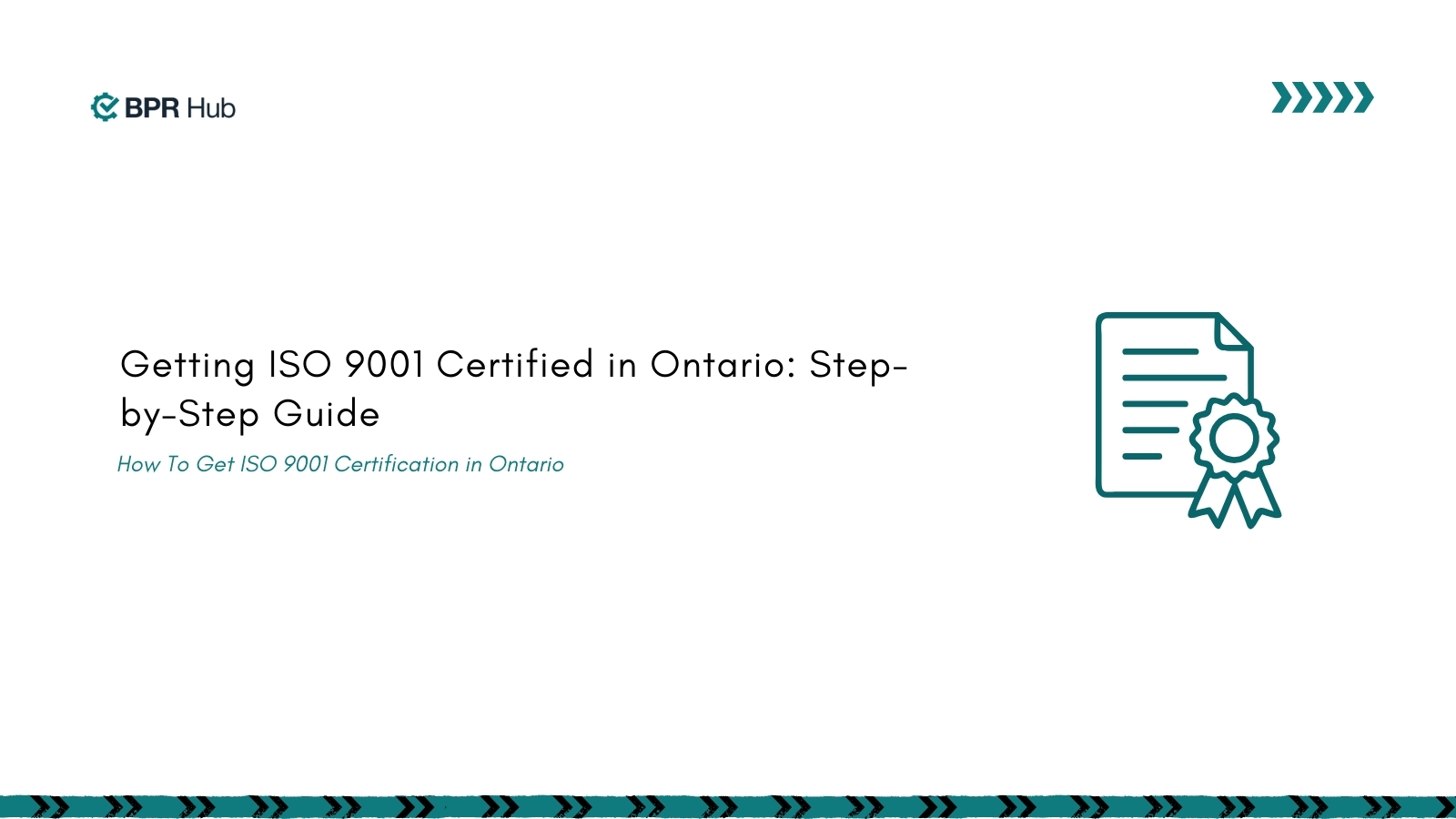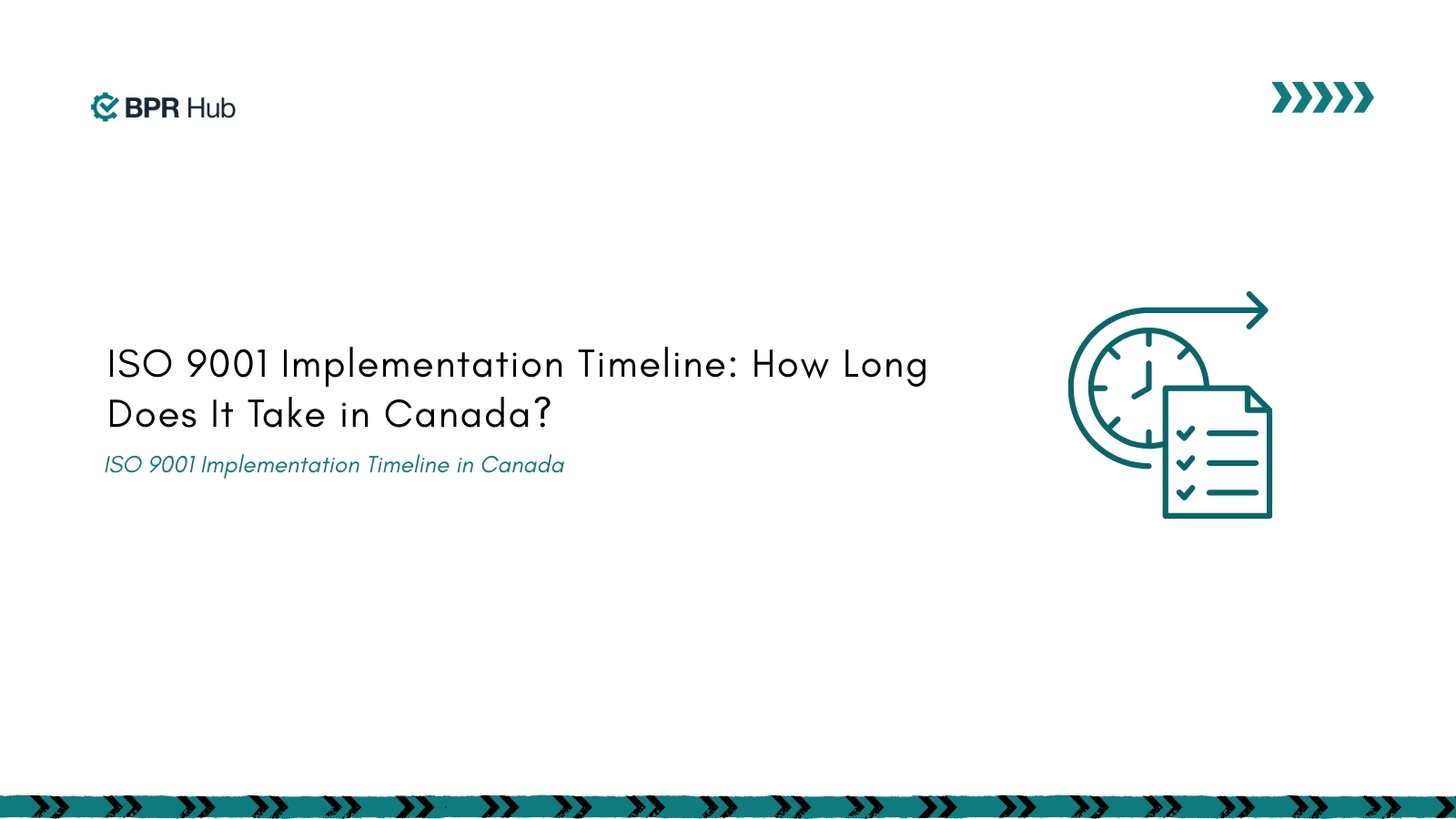Manufacturing companies in Chicago face increasing pressure to demonstrate environmental responsibility while maintaining operational efficiency. ISO 14001 certification in Chicago has become essential for manufacturers seeking competitive advantages in sustainability-conscious markets, with over 420,000 organizations worldwide having achieved this environmental management standard.
According to the latest ISO Survey 2022, ISO certification in Chicago provides manufacturers with systematic approaches to environmental management that support operational efficiency while improving regulatory compliance. This comprehensive guide breaks down everything Chicago manufacturers need to know about achieving ISO 14001 certification efficiently and cost-effectively.
Understanding ISO 14001 Environmental Management System Requirements
ISO 14001 establishes the framework for Environmental Management Systems (EMS), which help organizations systematically manage their environmental responsibilities. The standard requires companies to identify environmental aspects, establish objectives, and implement controls that minimize environmental impact while supporting business growth.
The environmental management system must address all environmental aspects of operations, including energy consumption, waste generation, emissions, and resource usage. Companies must demonstrate continuous improvement in environmental performance through measurable objectives and regular monitoring.
Core Components of ISO 14001 Implementation
ISO 14001 implementation centers on the Plan-Do-Check-Act cycle that ensures systematic environmental management. Organizations must establish environmental policies, identify significant environmental aspects, and set measurable objectives that align with business strategies.
The system requires comprehensive documentation covering environmental procedures, work instructions, and records that demonstrate compliance with both the standard and applicable environmental regulations. This documentation forms the foundation for both internal management and external audits.
Employee competence and awareness represent critical success factors, requiring organizations to provide appropriate training on environmental responsibilities and EMS procedures. The system must ensure that all personnel understand their environmental impact and know how to implement required controls.
Environmental Aspects and Impact Assessment
Environmental aspects assessment identifies how organizational activities interact with the environment, enabling companies to prioritize improvement opportunities. This assessment must consider both normal operations and emergencies that could impact environmental performance.
The evaluation process examines inputs like raw materials and energy alongside outputs including products, emissions, and waste streams. Organizations must determine which aspects have significant environmental impacts and establish controls to manage these effectively.
Risk assessment methodologies help organizations evaluate potential environmental impacts and implement preventive measures. This proactive approach reduces the likelihood of environmental incidents while supporting regulatory compliance objectives.
ISO 14001 Certification Process in Chicago
The ISO 14001 certification process in Chicago typically spans 6-12 months, depending on organizational size and complexity. Manufacturing companies must work with accredited certification bodies that understand local environmental regulations and industry-specific requirements.
Initial gap analysis identifies areas where current practices differ from ISO 14001 requirements, providing roadmaps for implementation planning. This assessment helps organizations allocate resources effectively while establishing realistic timelines for certification achievement.
Stage 1: Documentation and System Development
System development begins with establishing environmental policy statements that demonstrate top management's commitment to environmental stewardship. The policy must align with the organizational context while addressing compliance obligations and improvement commitments.
Documentation development includes creating procedures for environmental aspects identification, objective setting, operational controls, and emergency preparedness. The system must integrate with existing management processes to avoid duplicating efforts while ensuring comprehensive coverage.
Internal audit programs verify system effectiveness before external assessment, identifying areas requiring improvement while building internal capability. These audits provide valuable experience that prepares teams for certification audits while demonstrating system maturity.
Stage 2: External Certification Audit
Certification audits consist of two stages conducted by accredited certification bodies. Stage 1 reviews documentation and system readiness, while Stage 2 evaluates implementation effectiveness through an on-site assessment of actual practices.
Auditors examine evidence of environmental management system operation, including records of environmental monitoring, objective achievement, and continuous improvement activities. They verify that the system operates as documented and achieves intended environmental outcomes.
Successful certification results in three-year certificates that require annual surveillance audits to maintain validity. These ongoing assessments ensure continued system effectiveness while supporting continuous improvement objectives.
Accelerate Your ISO 14001 Certification with BPRHub – Start Today
📍 Book a Demo
📧 hello@bprhub.com
ISO 14001 Certification Cost Analysis in Chicago
ISO 14001 certification cost in Chicago varies significantly based on organizational size, complexity, and chosen implementation approach. According to certification consultants in Chicago, total costs typically range from $15,000 to $100,000 for complete implementation and certification, though costs may vary based on specific organizational circumstances.
Consulting fees represent the largest cost component, with the referenced source indicating ranges from $8,000 to $50,000 depending on organizational complexity and internal capability. Companies with existing management systems often require less external support, reducing overall implementation costs.
Breakdown of Certification Expenses
Certification body fees typically range from $5,000 to $15,000 for initial certification, including both audit stages and certificate issuance. Surveillance audit costs average $2,000 to $5,000 annually, with recertification audits every three years costing similar amounts to initial certification.
Training costs for internal teams vary from $2,000 to $10,000, depending on training scope and delivery methods. Organizations requiring extensive environmental awareness training across large workforces may incur higher costs but achieve better implementation results.
Documentation development and system implementation costs range from $5,000 to $25,000, depending on complexity and existing system maturity. Companies with established quality management systems often leverage existing processes, reducing development costs significantly.
Return on Investment Considerations
Environmental management system implementation typically generates benefits through improved resource efficiency, waste reduction, and regulatory compliance. Research from various industry studies suggests that organizations often experience operational improvements and cost efficiencies following ISO 14001 implementation, though specific savings vary by organization and industry.
Regulatory compliance benefits include reduced inspection frequency, lower permit costs, and decreased liability exposure. These benefits often provide value that organizations find justifies certification investment while providing ongoing competitive advantages.
Market access improvements enable certified companies to compete for contracts requiring environmental standards compliance. Many government contracts and large corporations now require supplier environmental certification, making ISO 14001 essential for market participation.
Chicago-Specific Environmental Compliance Requirements
Chicago manufacturers must navigate complex environmental regulations, including Illinois Environmental Protection Agency requirements and local ordinances. ISO 14001 implementation helps organizations systematically address these obligations while maintaining comprehensive compliance records.
The city's industrial corridor faces particular scrutiny regarding air quality, water discharge, and waste management practices. Environmental management systems provide structured approaches to managing these requirements while supporting operational efficiency.
Integration with Local Environmental Programs
Chicago's environmental initiatives, including the Chicago Climate Action Plan and industrial sustainability programs, align well with ISO 14001 objectives. Certified organizations may qualify for various incentive programs and regulatory recognition that provide additional business benefits, though specific program availability should be verified with current city offerings.
Local certification bodies understand regional environmental priorities and can provide valuable guidance on implementation approaches that address both standard requirements and local expectations. This expertise proves particularly valuable during audit preparation and ongoing system maintenance.
The Illinois Manufacturing Extension Partnership offers resources supporting environmental management system development, including training programs and technical assistance. These resources complement ISO 14001 implementation while building local capability.
Industry-Specific Implementation Considerations
Manufacturing sectors in Chicago face unique environmental challenges requiring tailored implementation approaches. Food processing companies must address water usage, organic waste, and energy consumption while maintaining food safety requirements.
Chemical manufacturers focus on emission controls, hazardous waste management, and emergency response planning. The environmental management system must integrate with existing safety management systems while addressing process-specific environmental aspects.
Integration with Existing Management Systems
Organizations with established quality management systems can leverage existing documentation and processes to accelerate ISO 14001 implementation. The Plan-Do-Check-Act cycle common to both standards enables integrated approaches that reduce implementation effort.
Companies certified to ISO 9001 often find environmental management system development more straightforward due to existing audit cultures and documentation practices. This integration opportunity reduces costs while improving system effectiveness.
Risk management processes developed for quality management easily extend to environmental aspects assessment and control. The systematic approaches required for both standards create synergies that strengthen overall management system effectiveness.

Technology Solutions for ISO 14001 Compliance
Modern environmental management systems leverage technology to automate data collection, monitoring, and reporting activities. Cloud-based platforms enable real-time environmental performance tracking while reducing the administrative overhead associated with manual systems.
Integration with manufacturing execution systems provides automatic capture of environmental data, including energy consumption, waste generation, and emission levels. This automation improves data accuracy while reducing compliance burden on operational teams.
Digital Transformation in Environmental Management
IoT sensors and monitoring equipment provide continuous environmental data that supports objective decision-making and trend analysis. These technologies enable predictive maintenance approaches that prevent environmental incidents while optimizing resource usage.
Mobile applications enable field data collection and incident reporting that maintains system effectiveness across distributed operations. Real-time data access supports immediate corrective actions while maintaining comprehensive audit trails.
Artificial intelligence and machine learning capabilities identify patterns in environmental data that support continuous improvement initiatives. These insights enable proactive management approaches that prevent issues while optimizing environmental performance.
How BPRHub Helps with ISO 14001 Certification
BPRHub's comprehensive Quality, Compliance, and Governance platform streamlines ISO 14001 implementation by centralizing environmental management within unified systems that eliminate duplicate workflows. The platform's Unified Compliance Framework manages multiple standards simultaneously, reducing implementation complexity while ensuring comprehensive coverage.
With automated document control, real-time monitoring capabilities, and integrated audit management, BPRHub ensures continuous audit readiness while accelerating certification timelines. The platform's intelligent workflow automation captures environmental data automatically while generating regulatory reports that satisfy both standard requirements and local compliance obligations.
BPRHub's environmental management modules provide specialized tools for aspects assessment, objective tracking, and performance monitoring that support systematic environmental improvement. Integration with existing manufacturing systems eliminates data silos while providing comprehensive visibility into environmental performance across all operations.
The platform's training management capabilities ensure personnel competency while maintaining compliance records that satisfy audit requirements. This systematic approach to environmental management transforms compliance from an administrative burden into a competitive advantage that supports sustainable growth.
Streamline Compliance & Boost Sustainability – Book Your Free BPRHub Demo Now
📍 Book a Demo
📧 hello@bprhub.com
Key Takeaways
→ ISO 14001 certification in Chicago typically costs $15,000-$100,000 and takes 6-12 months, with potential benefits through operational improvements and market access
→ Environmental management systems require systematic identification of environmental aspects, establishment of objectives, and implementation of controls that demonstrate continuous improvement
→ Certification audits involve two-stage assessments by accredited bodies, followed by annual surveillance audits to maintain a three-year certificate validity
→ Chicago manufacturers must integrate Illinois EPA requirements and city sustainability initiatives with ISO 14001 requirements for comprehensive compliance
→ Technology solutions, including IoT monitoring and automated data collection, significantly reduce compliance burden while improving environmental performance visibility
→ BPRHub's platform centralizes environmental management within integrated compliance frameworks that accelerate certification while ensuring continuous audit readiness
FAQ
Q. How long does ISO 14001 certification take in Chicago?
ISO 14001 certification in Chicago typically requires 6-12 months from project initiation to certificate issuance. The timeline depends on organizational size, existing management system maturity, and resource allocation. Companies with established quality management systems often complete implementation faster due to existing documentation and audit cultures. The process includes gap analysis, system development, internal audits, and two-stage external audits by accredited certification bodies.
Q. What are the main costs involved in ISO 14001 certification?
ISO 14001 certification cost includes consulting fees ($8,000-$50,000), certification body fees ($5,000-$15,000), training costs ($2,000-$10,000), and system development expenses ($5,000-$25,000), according to Chicago certification consultants. Annual surveillance audits cost $2,000-$5,000, with recertification every three years. Total investment typically ranges from $15,000-$100,000, though costs may vary based on organizational size and complexity. Organizations often find value in the investment through improved efficiency and regulatory compliance benefits.
Q. Do Chicago manufacturers need specific environmental permits for ISO 14001?
ISO 14001 doesn't require specific permits but helps manufacturers systematically manage existing environmental obligations, including Illinois EPA requirements and local ordinances. The standard requires organizations to identify applicable legal requirements and demonstrate compliance through systematic monitoring and control measures. Environmental management systems often improve permit compliance while reducing regulatory inspection frequency and associated costs.
Q. Can ISO 14001 integrate with existing quality management systems?
Yes, ISO 14001 integrates seamlessly with existing quality management systems, including ISO 9001. Both standards use the Plan-Do-Check-Act cycle and similar documentation approaches, enabling organizations to leverage existing processes while adding environmental focus. Integrated management systems reduce implementation costs and administrative overhead while strengthening overall management system effectiveness through shared resources and processes.
Q. What ongoing maintenance does ISO 14001 certification require?
ISO 14001 maintenance requires annual surveillance audits, continuous environmental monitoring, regular management reviews, and ongoing training programs. Organizations must demonstrate continuous improvement through measurable environmental objectives and systematic performance monitoring. Internal audit programs verify system effectiveness while identifying improvement opportunities. The three-year certification cycle requires recertification audits that evaluate long-term system effectiveness and environmental performance trends.
Get insights that help you minimize risks and maximize profits.
Dive deeper into manufacturing compliance with our free resources.
We get it, compliance can get tough.
Here are some additional resources to help.
We get it, compliance can get tough. Here are some additional resources to help.
Get updates in your inbox

.svg)
%20(1).svg)





%20(1).svg)

.avif)

